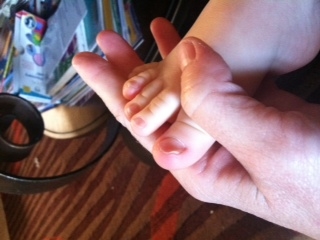Childhood absent-mindedness is a real problem for parents, since the baby is regularly distracted by any stimuli, is unable to concentrate while solving a problem, and cannot remember what he was told or read just a few minutes ago. Adults have to insist, stand "above the soul", every second controlling the process of execution. Why is your child absent-minded and what to do about it? Let's take a look at this issue.

What does attention affect?
- Perception. With distraction, the views of children are not fixed on the object, but randomly jump from one object to another. Such superficial perception leads to recognition errors, therefore, ideas about the world around them do not have completeness and integrity.
- For memory. A small child involuntarily remembers a lot of what he sees or hears. The unnecessary information is then filtered out. However, absent-minded children need instructions, but even with it they do not always remember the required phrases or pictures.
- Speech and thinking. Due to inattention, words do not combine into a structure, do not carry a stable meaning, therefore children confuse concepts that are similar in meaning. All this leads to a misunderstanding of cause-and-effect relationships, an inability to generalize, to find similarities and differences.
So, mindfulness is very important for the prospective student. How do you know if your child is absent-minded? The main signs of failure are as follows:
- it is difficult for your offspring to do one thing for a long time;
- any movement, music, even a low sound distracts him;
- in spite of trying, constantly makes mistakes;
- it is difficult for him to find and correct the mistakes made;
- he retells a short story with difficulty;
- due to multiple failures, he is not interested in assignments related to grading, so he prefers computer games or ordinary fuss with friends.
Causes of scattered behavior in children
Before you start fighting inattention, you still need to find out where it came from. Experts identify a number of provoking factors.
- An important role is played by the peculiarity of the nervous system. A choleric person may be distracted due to the fact that he wants to do many things at once in the same second. Melancholic, on the other hand, are slow and often have difficulty switching attention.
- A weakened body and a painful condition can also cause inattention in the baby. Low hemoglobin levels, low blood pressure, headaches, infectious diseases and even a common cold - all these factors lead to distraction, often unnoticed by the parents.
- Sometimes this lack of attention only manifests itself in certain activities, such as learning a foreign language or teaching to read. This means that your child does not like these activities or he is too young for this.
What to do?
Lack of focus is not a sentence. It is in your power to help your child, not by punishing for "catching crows", but by training his attention and memory. All this can be done at home, but still contacting a psychologist or pediatrician in some cases will not be superfluous.
- From an early age, teach your baby to focus on objects. Dynamic toys, a mother's mirror and, in the end, the faces of relatives can arouse the interest of a crumbs for a long time.
- Collecting jigsaw puzzles, mosaics or bingo are very exciting board games that require some concentration from preschoolers. Don't just give the kid a box with a puzzle, but sit down next to him, show how you can add an image or build a whole city from a constructor. Then transfer the initiative to your son or daughter - let him complete the task on his own.
- Lay out several small trinkets (toys, buttons, beads) in a row, gradually increasing their number. Your offspring should guess what you hid behind your back or changed places. Also useful tasks "Find the differences" or "Labyrinths".
- Try to walk more often in the fresh air, go to the forest. Discuss the natural phenomena you saw: how birds sing, leaves turn yellow, flowers bloom, the wind rustles in the trees. Ordinary contemplation will help develop observation in the child.
- Discuss the stories you read or the cartoon you watched, refreshing the storylines, the actions of the main characters, and unusual details.
- Provide your student with a work environment at home and in the classroom. Move the table away from the window so that he is not tempted to look at people and cars on the street. Turn off the TV and computer when doing homework. Ask the teacher to transfer to the first school desk so that the child does not hover in the clouds in Kamchatka.
- Analyze the daily routine of the first grader. Do not overload with unnecessary activities, sections, sports circles. Make sure he gets enough sleep and gets the necessary vitamins.
As you can see, nothing is impossible. The main thing is that parents themselves should not be absent-minded and not forget about daily exercises, joint games and family walks.



